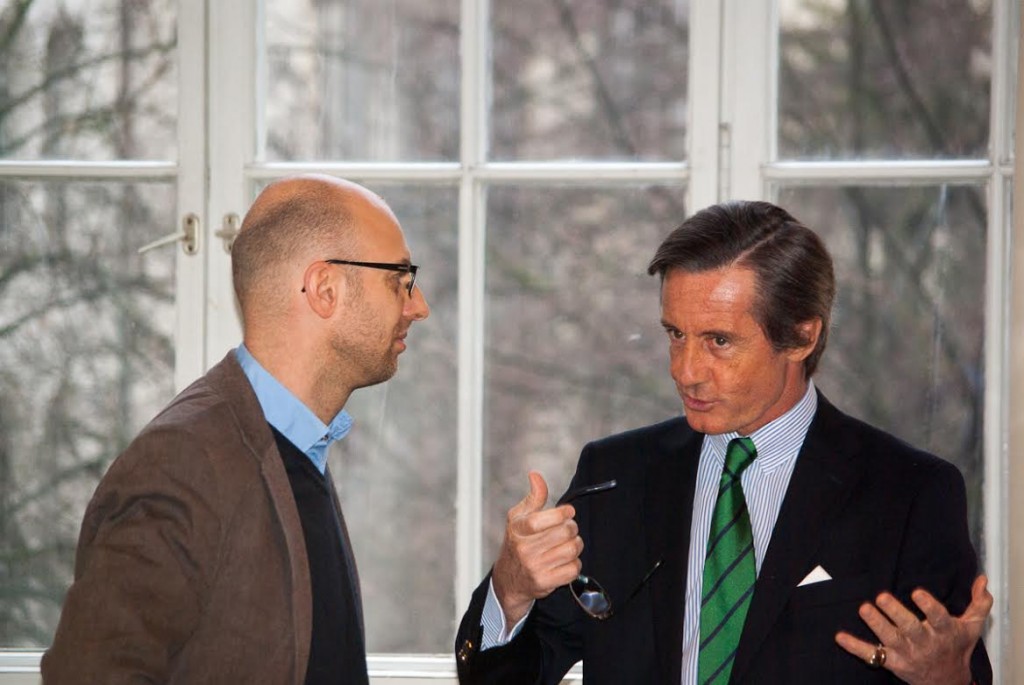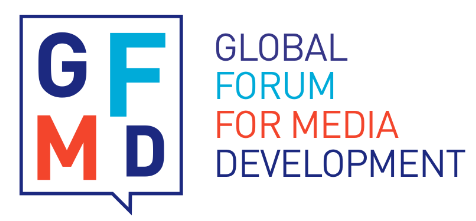Professional Events
Workshops, Meetings, and other Events with Practitioners & Policy Makers
April 26th, 2016 6:30:pm,
The workshop brought together organisations from media development, academics and practitioners working on media development, strategic communication and CVE. Professor Christoph Meyer represented the INFOCORE consortium at the workshop. The first point to be emphasised is the importance of media credibility in order to have an impact and this can be highly variable in terms of which types of media and actors are considered how trustworthy by whom and in different contexts. This can only be ascertained through listening carefully to what relevant publics have to say and which media they actually consume. In many of our conflict cases, the preliminary evidence points to low levels of trust among populations in many national-level news organisations whom they see as compromised by political or commercial interests and thus untrustworthy in various ways. Yet there are also credible communicators who are often very local and may in some cases not conform to standard expectations of what a medium is and intersect at times with forms of community mobilisation and social movements. Such local actors can use modern technology to fill a void in supplying information to foreign news media in settings of ongoing conflict and build up their credibility over time through the provision of such information. In such conflict situations, one of the challenges for media development activities is how such local actors can be supported without compromising their independence, the physical safety of those working for them or undermine their credibility by denying accurate news that may be inconvenient for some of the donors. In less dangerous settings the challenge is how donors can integrate media assistance in broader strategies of democratisation and development that tackle the many obstacles for media to report independently from the national or local power-brokers. Second, the success of media assistance cannot be analysed in isolation from many other actors and processes, including the policies pursued by governments and international organisations. A new strategic approach is needed in some of the countries where retrograde processes are identified in terms of media and journalists' freedoms , because the existing types of assistance and support to the media haven't resulted so far to expected outcomes. Success should not just be measured in terms of changing behaviour or attitudes, but also in terms of enhancing public knowledge through more accurate and relevant information. For more information about the workshop can be found here.
INFOCORE consortium members host panel at Summer School on Security Policy
May 12th, 2014,
 Photo by Skender Perteshi
Abit Hoxha, Marc Jungblut and Katsiaryna Stalpouskaya of the INFOCORE consortium were invited to host a panel at the Summer School on Security Policy held by the Kosovar Center of Security Studies (KCSS), the Belgrade Centre for Security Policy (BCSP) and the Albanian Institute for Democracy and Mediation (IDM) on May 12th in Ulcinj, Montenegro. The panel was held for the audience consisting of journalists, NGO activist and other practitioners. The three doctoral researchers of the INFOCORE from Ludwig Maximilian University of Munich presented INFOCORE’s general conceptual framework as well as their work associated with media and conflict. The panel was wrapped up by a Q&A session, at which the participants expressed their keen interest in the methodological aspect of the project as well as its future results and outcome.
Photo by Skender Perteshi
Abit Hoxha, Marc Jungblut and Katsiaryna Stalpouskaya of the INFOCORE consortium were invited to host a panel at the Summer School on Security Policy held by the Kosovar Center of Security Studies (KCSS), the Belgrade Centre for Security Policy (BCSP) and the Albanian Institute for Democracy and Mediation (IDM) on May 12th in Ulcinj, Montenegro. The panel was held for the audience consisting of journalists, NGO activist and other practitioners. The three doctoral researchers of the INFOCORE from Ludwig Maximilian University of Munich presented INFOCORE’s general conceptual framework as well as their work associated with media and conflict. The panel was wrapped up by a Q&A session, at which the participants expressed their keen interest in the methodological aspect of the project as well as its future results and outcome.
UN Under-Secretary-General for Communications speaks on Press Work in Conflict
February 3rd, 2014 10:00:am, LMU Munich, IfKW
 On February 3rd, UN Under-Secretary-General for Communications and Public Information, Peter Launsky-Tieffenthal, delivered a talk at the Institute of Communication Studies and Media Research in Munich. An experienced diplomat, Mr. Launsky-Tieffenthal offered an insider's view on the UN’s press department. He especially addressed the communicative challenges arising from the United Nation's cultural diversity. The Under-Secretary-General's visit to LMU took place in conjunction with the Munich Security Conference.
Mr. Launsky-Tieffenthal, who closely works with UN General-Secretary Ban-Ki-moon, spoke about the United Nation’s work in general, as well as specifically about the UN’s press work in international conflicts.
On February 3rd, UN Under-Secretary-General for Communications and Public Information, Peter Launsky-Tieffenthal, delivered a talk at the Institute of Communication Studies and Media Research in Munich. An experienced diplomat, Mr. Launsky-Tieffenthal offered an insider's view on the UN’s press department. He especially addressed the communicative challenges arising from the United Nation's cultural diversity. The Under-Secretary-General's visit to LMU took place in conjunction with the Munich Security Conference.
Mr. Launsky-Tieffenthal, who closely works with UN General-Secretary Ban-Ki-moon, spoke about the United Nation’s work in general, as well as specifically about the UN’s press work in international conflicts.

